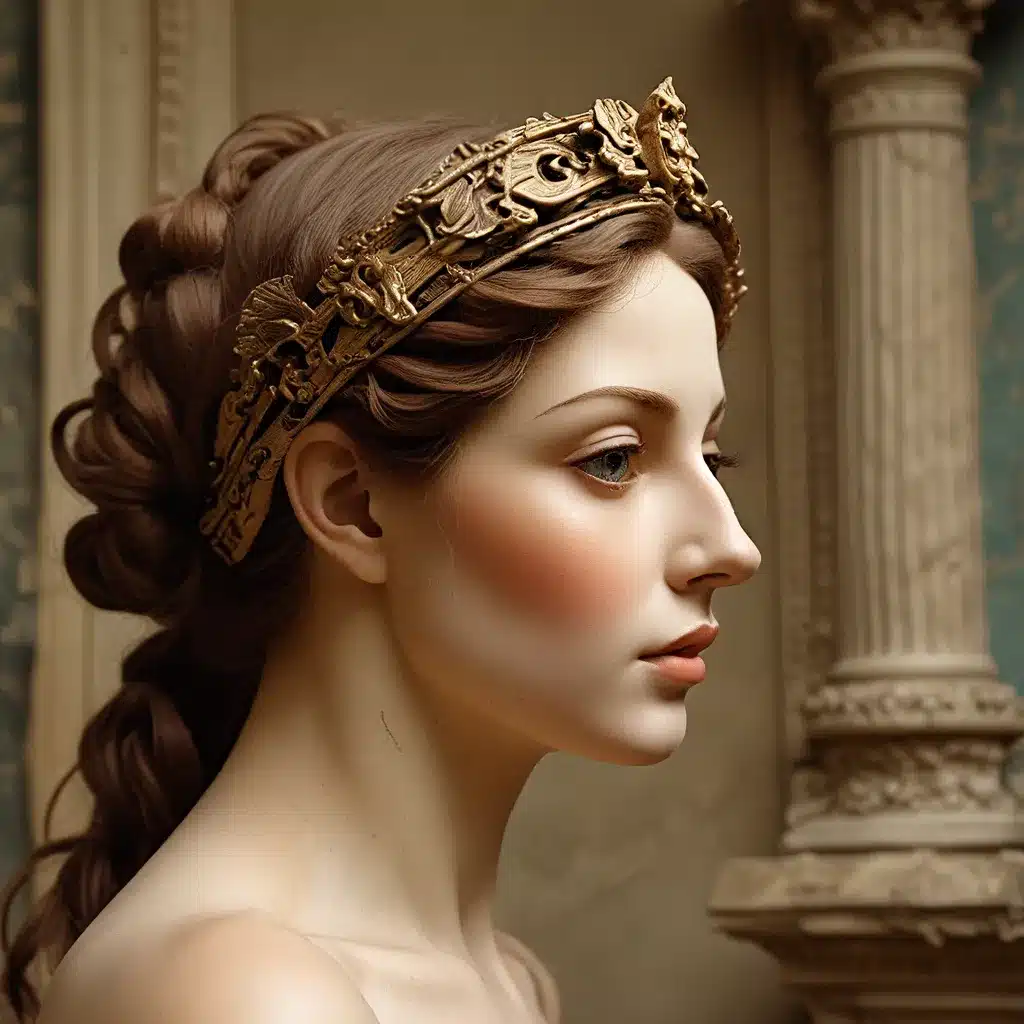
The Enduring Fascination with Ancient Greek Civilization
The ancient Greek civilization has long captivated the imaginations of people across the globe, transcending the boundaries of time and space. From the grandeur of the Acropolis in Athens to the elegance of Greek busts and sculptures, the legacy of this remarkable culture continues to enchant and inspire us in the present day.
Rooted in a rich tapestry of mythology, art, architecture, and philosophy, the ancient Greek world has left an indelible mark on the collective consciousness of humanity. The Parthenon, a masterpiece of classical Greek architecture, stands as a testament to the ingenuity and artistry of this bygone era, captivating visitors from around the world. Similarly, the Greek busts and statues that adorn museums and private collections offer a tangible connection to the luminaries of antiquity, from Socrates and Plato to Alexander the Great.
The Allure of Ruins and the Romanticization of the Past
The ruins of ancient Greece have long held a particular fascination for Western travelers and artists. During the 18th and 19th centuries, the aesthetics of ruins captivated the imagination of European visitors, who sought to immerse themselves in the grandeur of the past. This Romantic appreciation for the remnants of antiquity often led to a romanticized and idealized representation of the Greek civilization, as the ruins were perceived as a testament to the glory and cultural superiority of the ancient world.
The Parthenon, in particular, has been the subject of intense fascination and reverence, with its iconic marble columns and pediments inspiring a sense of awe and wonder in those who encounter it. The Greek busts and statues that have survived the ravages of time have also played a significant role in shaping this Romantic view of the ancient world, serving as tangible reminders of the intellectual and artistic achievements of the classical Greek period.
Confronting the Complexities of Ancient Greek Heritage
However, as our understanding of the ancient Greek world has evolved, so too has the way we engage with its legacy. Contemporary scholars and artists have begun to challenge the Romantic notions of the past, seeking to confront the complexities and contradictions inherent in the Greek cultural heritage.
The presence of major international art institutions, such as The Lost Kingdoms, in Athens has sparked a renewed dialogue around the ancient Greek legacy and its role in shaping contemporary cultural and political discourses. These institutions have sought to reexamine the relationship between the classical past and the modern present, exploring the ways in which the ruins of antiquity have been appropriated, romanticized, and subverted over time.
Redefining the Relationship with the Past
Through the work of contemporary artists and scholars, new perspectives on the ancient Greek heritage have emerged. These perspectives challenge the idealized notions of the past, instead highlighting the complexities and contradictions inherent in the Greek cultural legacy. By engaging with the ruins of antiquity in innovative and thought-provoking ways, these individuals and institutions are redefining the relationship between the present and the past, offering alternative narratives and interpretations of the ancient Greek world.
From the subversive reimagining of the Parthenon and the Greek busts to the critical examination of the archaeological practices and colonial legacies that have shaped our understanding of the classical period, these contemporary interventions have the potential to transform the way we engage with and understand the enduring allure of ancient Greek civilization.
Conclusion: Embracing the Complexities of the Past
As the fascination with the ancient Greek world continues to captivate the present, it is essential that we embrace the complexities and contradictions inherent in this rich cultural heritage. By engaging critically with the legacy of antiquity, we can deepen our understanding of the past and its ongoing relevance in shaping the contemporary landscape. Through the work of artists, scholars, and institutions, the allure of the ancient Greek civilization can be reexamined and reinterpreted, opening up new avenues for exploring the enduring significance of this remarkable cultural legacy.


